In 2018, carpenter Heather Lidberg, a Vancouverite by adoption, and her fiancée from Pointe-Claire decided to move to Québec. They were attracted to the affordable cost of living, their taste for adventure, and the chance to accomplish their dreams without the burden of monthly rent in Vancouver.
They were hoping to find a sense of community they had lost in the big city. "We sold everything except our tools," she recalls. "I love Québec. The culture, the restaurants, all that is left is to make a place for ourselves in the system."
Recognition of Acquired Competencies
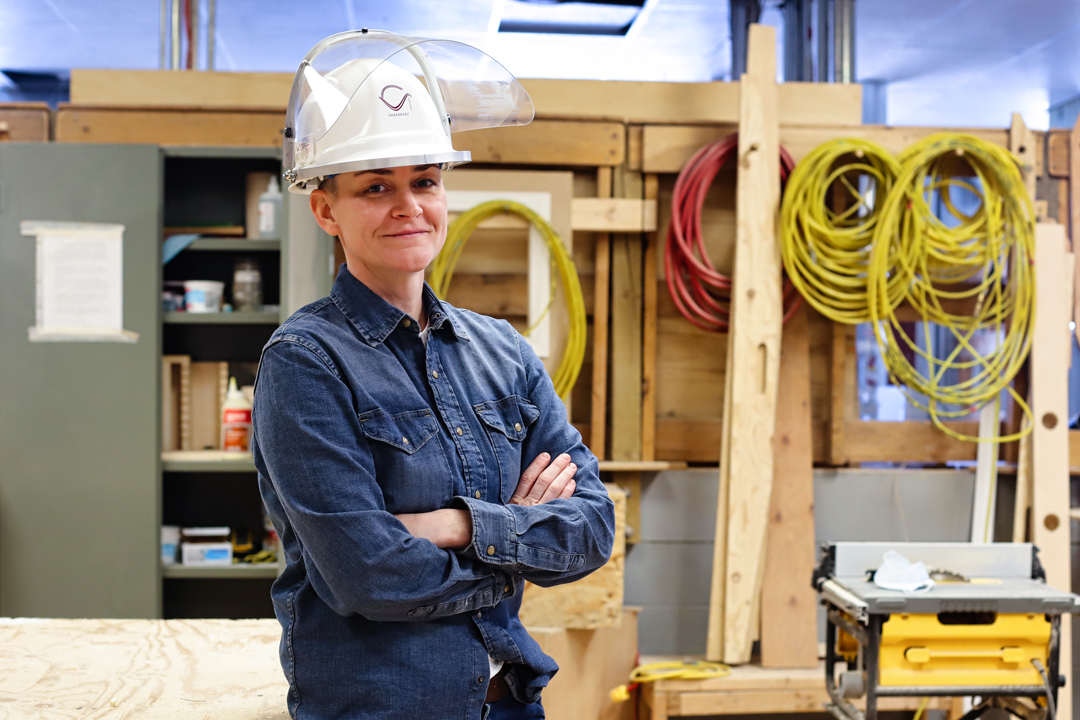 Heather Lidberg studied carpentry at the British Columbia Institute of Technology (BCIT).
Heather Lidberg studied carpentry at the British Columbia Institute of Technology (BCIT).Upon arriving in Québec, Heather and Alika settled down in Rigaud. Heather began the process of obtaining her contractor's license from the Régie du bâtiment du Québec (RBQ) at the Nova Career Centre in Châteauguay.
She also began the process for the recognition of acquired competencies (RAC) at the Châteauguay Valley Career Education Centre (CVCEC), in Ormstown, in the Montérégie region. During her registration, someone called out to her, "You have to meet the principal!" A few months later, Heather was teaching carpentry part-time as well as the RAC program for newcomers and people arriving from other Canadian provinces.
A Different Kind of Building
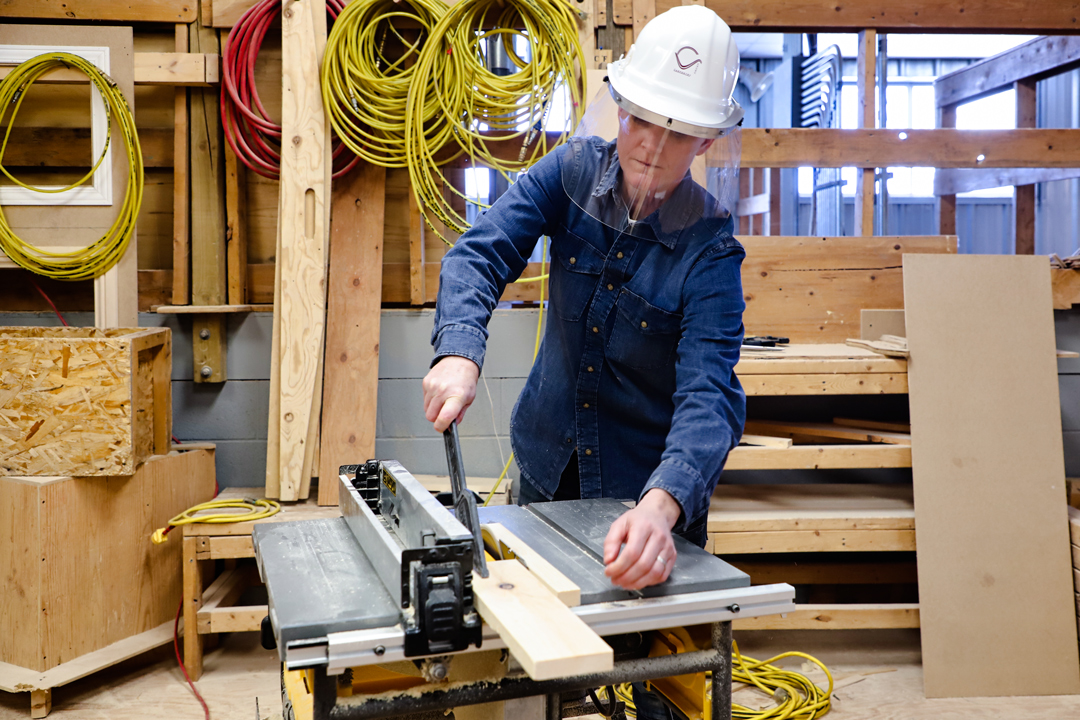 Vancouverite by adoption, she travelled across the country to work in Québec and founded her business, Nova Women Builders, with her partner : Nova women builders.
Vancouverite by adoption, she travelled across the country to work in Québec and founded her business, Nova Women Builders, with her partner : Nova women builders.Before they were fully licensed to work in construction in Québec, Heather and her partner started their home renovation company Nova Women Builders and worked on a series of contracts in Eastern Ontario, where the administrative requirements to operate a business are less restrictive. "We build and renovate houses.
"For families, it is a big monetary investment. It is oftentimes a major milestone in life. We are lucky to be able to share this moment with them. It's a job that allows you to set roots and makes you proud. There is a great sense of accomplishment in it."
Non-Breaking Space
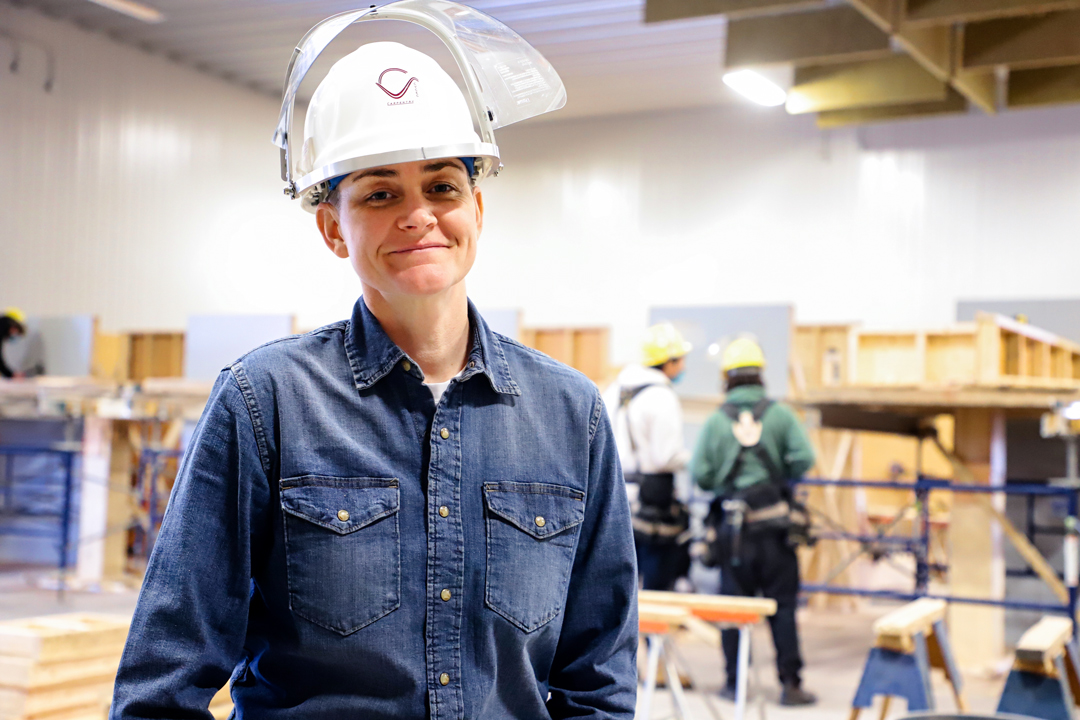 In addition to practicing her trade, she teaches carpentry at the Châteauguay Valley Career Education Centre (CVCEC) in Ormstown, Montérégie.
In addition to practicing her trade, she teaches carpentry at the Châteauguay Valley Career Education Centre (CVCEC) in Ormstown, Montérégie.As a teacher, Heather feels it is her responsibility to create and ensure a safe and respectful space for all. There is a zero-tolerance policy when it comes to bullying and discrimination. Education has the power to break down barriers. "It's important to feel welcome in order to learn and grow. It contributes to mental health. I also want my students to feel like I am there for them and will listen to them."
When going over the syllabus at the beginning of term, she asks students to commit to denouncing bullying or any other limiting forms referencing race, weight, ethnicity, religion, disabilities, sexual orientation or gender. "I make sure the environment is free of all forms of harassment. We are all responsible for our actions, including our words and comments."
A Place for Women
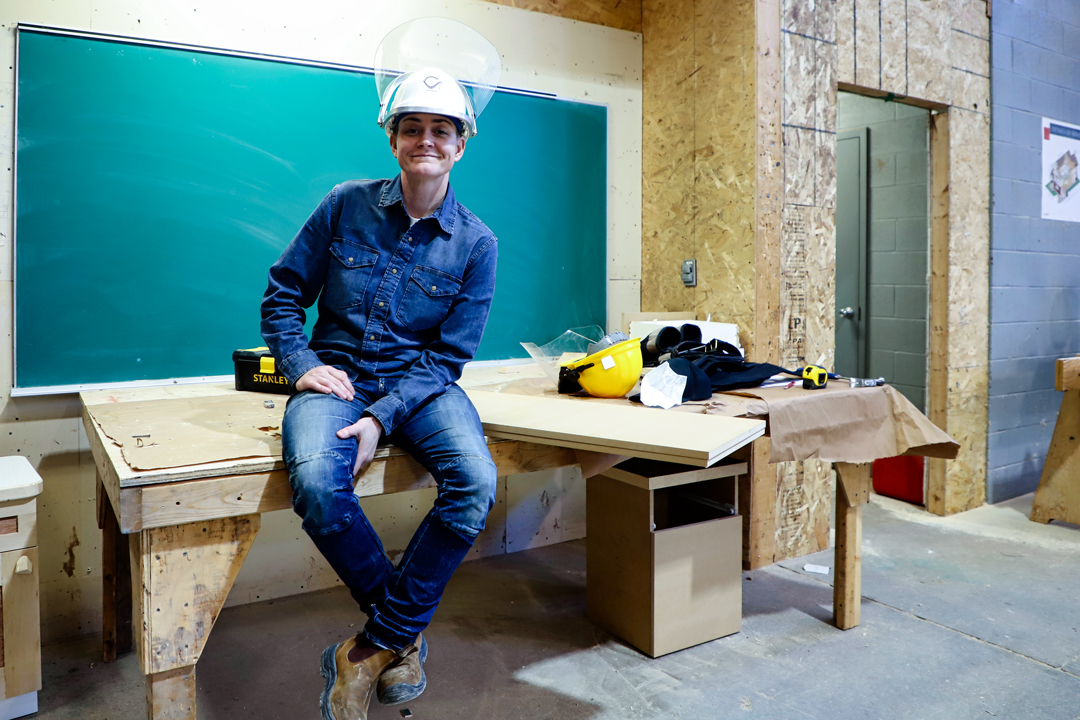 Driven by her convictions, she makes it her mission every day to promote the role of women in the construction industry.
Driven by her convictions, she makes it her mission every day to promote the role of women in the construction industry.For Heather, no woman should have to change to be able to integrate traditionally male occupations. "We don't have to adapt. We just have to be ourselves. Construction is the last remaining industry where women have not been able to break through.
"Once there will be more women, it will be a real game changer." In this regard, Heather notes that the carpentry trade is experiencing a significant labour shortage in Québec. Thousands of carpenters will be needed to meet the demand in the upcoming years, and while half could be women, they only represent 1.59%1.
How can we make progress? Heather has many solutions. "We need to change the mass culture discourse, this dictatorship of pink and blue that starts from the cradle. But also, we need to see more girls in traditionally male professions. There should be financial incentives to help women access training in these trades and help with work-family balance, especially with childcare."
"There should be financial incentives to help women access training in these trades and help with work-family balance, especially with childcare."
Other Male-Dominated Fields
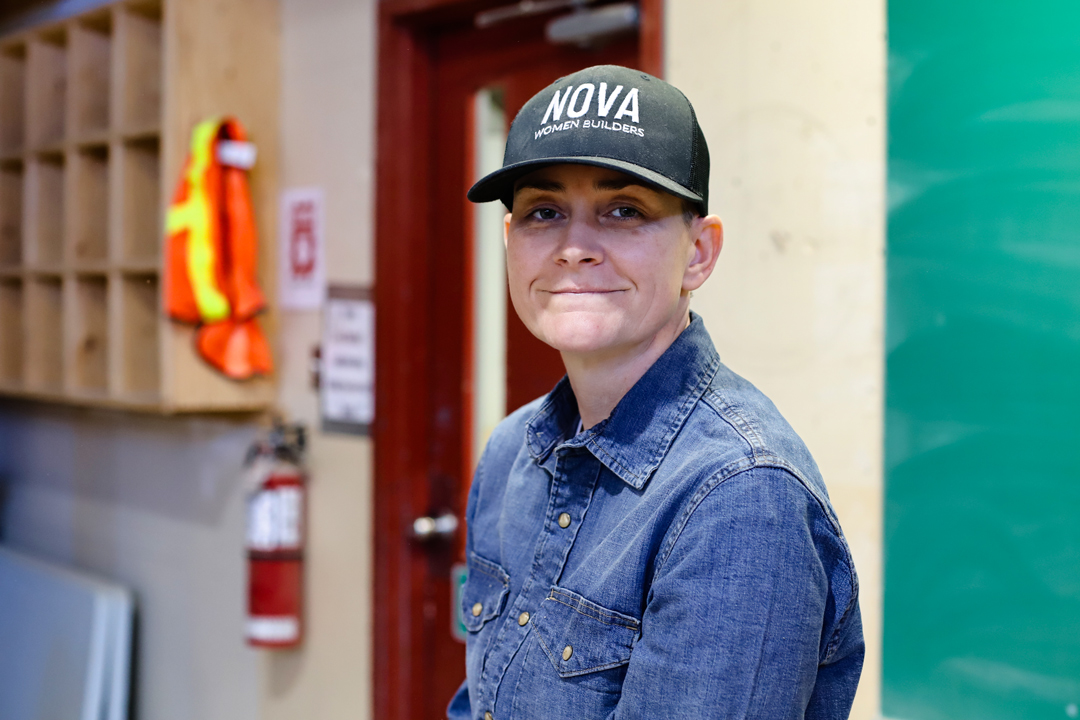 "We need to change the mass culture discourse, this dictatorship of pink and blue that starts from the cradle. But also, we need to see more girls in traditionally male professions," says Heather.
"We need to change the mass culture discourse, this dictatorship of pink and blue that starts from the cradle. But also, we need to see more girls in traditionally male professions," says Heather.Heather was born in Kindersley and grew up in Moose Jaw, a small community in Saskatchewan. Her parents, who were farmers, always encouraged her to follow her dreams. In high school, Heather was on every sports team. She played hockey and dreamed of joining the Royal Canadian Mounted Police.
In 1995, after her first year of community college, she enlisted in the artillery after answering the call of the army. She served as a Blue Helmet in Bosnia. When her military career came to an end in 2001, the veteran decided to return to school. She completed a BFA in New Media and an MFA in Documentary Media at Ryerson University in Toronto. Heather then went on to teach in Mexico, moved to Buffalo, New York, before returning to Canada and settling in Vancouver in the early 2000s.
Learning the Trade
When she could not teach between contracts, Heather took up construction. She renovated a farmhouse and flipped a house. After numerous renovation projects, she decided to study carpentry at the British Columbia Institute of Technology (BCIT).
"I wanted to learn how to do things properly, master the techniques and make sure I had good and safe practices," she explains. "The training is very different from Québec's. Students take four seven-week modules, interspaced with workplace practicums. It was important for me to go get those skills, and I love math."
She then worked in the industry for a few years before realizing that it was impossible to make a living as a carpenter in Vancouver. She then started her own business and combined residential renovations with other construction projects in cinema, television, and even theatre.
Getting Involved to Make Progress Happen
In construction, overall, Heather testifies to a painfully toxic atmosphere tinged with patriarchy and systemic sexism. "Mansplaining2 is rampant," she says.
An optimistic feminist, she believes that the fight for women's rights is not over. "I am grateful to all the women who have put their life on the line so that we may have the opportunities we have today. We still have a long way to go, but together, we can move mountains."
"Women don't have to change to fit in when it comes to trades. We don't have to adapt. We just have to be ourselves."
1. CCQ, Programme d'accès à l'égalité des femmes dans l'industrie de la construction (PAEF) 2015-2024
2. Mansplaining is a pejorative term meaning of a man "to comment on or explain something to a woman in a condescending, overconfident, and often inaccurate or oversimplified manner". Source : Wikipédia.
